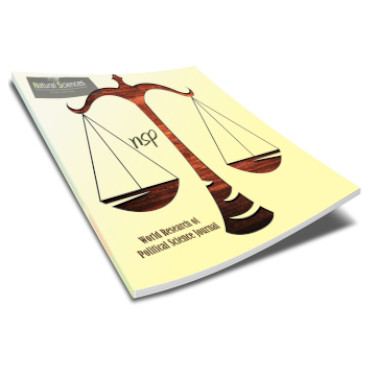
The World Research of Political Science Journal
Abstract
An insight in the MENA region after 7 years from the eruption of the "Arab Spring", shows that very few countries were able to stabilize while the rest are still struggling. Yemen is the poorest one, it have suffered from deteriorating political, economic and social conditions. A popular revolution hit Yemen in 2011; at its outset, it was thought to be a successful revolution, as it toppled down the regime – even with a pact- yet shortly after, in 2014, the rebel group, Huthis, emerged on the political scene and the civil conflict broke out, threatening with the state failure scenario. The Yemeni case shows that the core of the problem – even before the transition – was related to the lack of properly structured functioning institutions which resulted in increased corruption that deepened the sectarian problems in the country. Due to the galvanized situation in the region, survival- not democratization- became the ultimate goal. In this context this paper aims at analyzing the actual role of the constitutional drafting as one of the most important formal political institutions. The main hypothesis is testing the impact of constitutional drafting on achieving conflict resolution in conflicting societies. The paper concludes by exploring this impact and its reasons.
Recommended Citation
Elzayat, Shorouk
(2019)
"Conflict Irresolution: Elucidating the Yemeni Crisis 2011-2015,"
The World Research of Political Science Journal: Vol. 2:
Iss.
2, Article 1.
Available at:
https://digitalcommons.aaru.edu.jo/wrpsj/vol2/iss2/1

